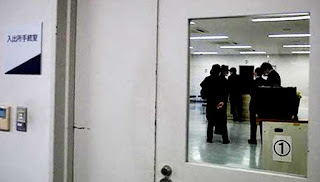Have you met a government employee at a government office
who mercilessly scanned every detail of a written application and
rejected it for any small issue? Such people are said to have a
"bureaucratic" mind. Their sole purpose is to approve or reject the piles of government red tape.
The expression "red tape" originates with the red ribbon that once bound
official documents in Britain. Today, it has come to represent what we mere common people see as document worship by the staff of government
offices. In recent times, the bureaucracy's
"document-ism" is intended to guarantee the preservation of evidence of
official government actions, projects and decision-making so that it can be
examined later.
It needs to be impossible for the government to be bereft
of records to show how it decided to sell a plot of state-owned land for
just 14 percent of its appraised value. Of course, we are talking about
the Finance Ministry's handling of just such a sale to nationalist
private school operator Moritomo Gakuen. Surely those responsible for
caring for Japanese people's assets have an obligation to maintain proof
that they are carrying out this management fairly.
What is surprising about the Moritomo affair is that the finance
bureau head who so bluntly insisted during Diet discussions that the
sale was "appropriate" while maintaining that "there are no records" has
gone on to the top post in the National Tax Agency. Taxpayers
struggling with the ample volumes of tax-system red tape must be
astonished at the Finance Ministry's idea of "fairness."
Chief Cabinet Secretary Yoshihide Suga, who is in the nerve center
of the government which now holds authority over bureaucrats' postings,
stated recently that the aforementioned promotion stemmed from the
principle of "the right person in the right place." Surely he did not
mean that the government thought highly of the new National Tax Agency
chief's handling of the Moritomo scandal, in which he could not verify
the legitimacy of the land sale and as a result fueled public distrust
in the government. Neither the administration nor the Finance Ministry
should be so dismissive of taxpayers' feelings.
Prime Minister Shinzo Abe is now obsessed with revising the
Constitution, but we would like him to think about what in this world
gave rise to two other constitutions, namely Britain's Magna Carta and
the U.S. Constitution. Indeed, it was unjust taxation and unfair
spending that sparked the fury of the people to demand the reforms
embodied in these documents.














